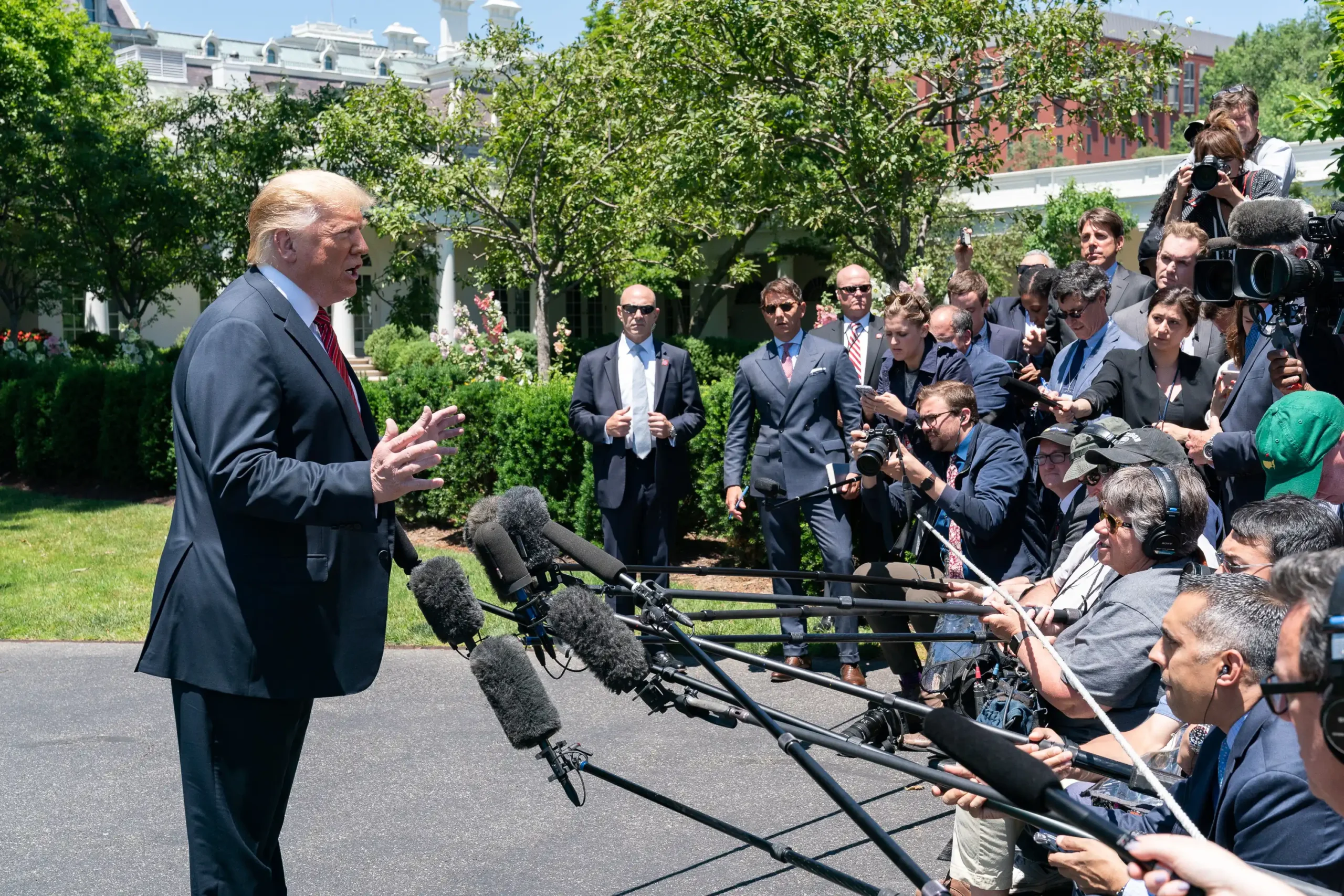The trillion-pound question: why Bitcoin just became too big for boardrooms to ignore

Marco Ryan
- Published
- Opinion & Analysis

Once dismissed as “internet money”, Bitcoin has forced its way into the boardroom. With sovereign wealth funds now holding billions, BlackRock’s ETF breaking records, and corporate treasuries posting staggering gains, Europe’s executives face a stark choice: ignore it and fall behind, or act before rivals lock in the future of finance, warns Marco Ryan
Larry Fink stood at Davos and declared Bitcoin would reach $700,000. The CEO of the world’s largest asset manager, who once called himself a “proud sceptic” had completed a transformation that mirrors a seismic shift happening in corner offices across Europe. The digital asset once dismissed as internet money has quietly accumulated backing from sovereign wealth funds worth $45 billion, while companies holding Bitcoin on their balance sheets have outperformed the market by over 3,000%.
The numbers tell a story that CFOs can no longer dismiss. BlackRock‘s Bitcoin ETF became the fastest-growing fund in history, amassing $63 billion in just 18 months. Michael Saylor’s MicroStrategy, now simply called “Strategy” after its February rebrand, turned a $33 billion Bitcoin bet into $70 billion, delivering returns that make traditional treasury management look antiquated. Meanwhile, a sobering reality lurks: up to 29% of all Bitcoin has been permanently lost, worth £140 billion at current prices, because owners died without proper succession planning.
This isn’t about whether Bitcoin belongs in corporate treasuries anymore. That debate ended when Abu Dhabi’s sovereign wealth fund deployed $408 million and Norway’s pension fund gained $357 million in exposure. The question facing European executives today is more urgent: How do you gain strategic exposure to an asset that mathematical models suggest could reach $1.5 million by 2030, while navigating regulatory frameworks that are still being written?
When BlackRock Changes Its Mind, Markets Follow
Larry Fink’s journey from Bitcoin sceptic to evangelist reads like a Wall Street conversion story. The man who manages $11.6 trillion didn’t just change his opinion; he provided the mathematical framework that should keep CEOs awake at night. “If worldwide adoption reaches just 2-5% of portfolios,” Fink explained at Davos, “Bitcoin goes to $500,000 to $700,000.”
Every pension fund, every insurance company, every corporate treasury allocating even a sliver to Bitcoin creates buying pressure on an asset with only 21 million units ever to exist. The ETFs alone already control 7.1% of total supply. When you factor in lost coins, government holdings, and long-term believers who won’t sell, the available float shrinks to perhaps 2-3 million Bitcoin.
Cathie Wood at ARK Invest sees this dynamic pushing Bitcoin to $1.5 million by decade’s end. Her analysis isn’t based on hope but on adoption curves that mirror the internet’s growth: from 516 million users today to 4 billion by 2030. Even conservative institutions have capitulated. Standard Chartered projects $200,000 by year’s end, while Bernstein Research just upgraded their target from $150,000 to $200,000.
The transformation of establishment thinking happened with remarkable speed. Three years ago, Jamie Dimon called Bitcoin “worthless.” Today, JPMorgan offers Bitcoin funds to wealth management clients. The question isn’t whether traditional finance will embrace Bitcoin but how fast the embrace will happen.
The Quiet Revolution in Government Vaults
While politicians debate, governments accumulate. The numbers are staggering: 463,741 Bitcoin worth $45 billion sits in government treasuries, representing 2.3% of total supply. But the real story isn’t the size; it’s the competition.
Bhutan, a nation known for measuring Gross National Happiness, has been quietly accumulating Bitcoin since 2019 using its abundant hydroelectric power. Rather than buying Bitcoin with foreign reserves, they use cheap electricity to run computers that process Bitcoin transactions, earning Bitcoin rewards for this service. Their 10,769 BTC holdings now represent 30% of GDP, acquired at near-zero cost beyond electricity. The kingdom is expanding its computing power from 100MW to 600MW, positioning itself to earn more Bitcoin as the price rises. For context, that’s a country with fewer people than Birmingham building Bitcoin wealth without spending a penny on purchases.
El Salvador continues its daily purchases despite IMF warnings, sitting on 6,268 BTC worth $610 million. President Bukele’s average purchase price of $44,292 looks prescient as Bitcoin trades near $120,000. The United States holds 198,012 BTC from criminal seizures, which Trump’s executive order just transformed from assets to be auctioned into a Strategic Reserve.
But the institutional validation came when Mubadala, Abu Dhabi’s sovereign wealth fund, disclosed its $408.5 million Bitcoin ETF position. When Middle Eastern oil money starts buying digital gold, the symbolism is unmistakable. Norway’s Government Pension Fund, the world’s largest at $1.7 trillion, increased its indirect Bitcoin exposure by 153% last year through holdings in companies like MicroStrategy and Tesla.
Fifteen U.S. states have introduced legislation to establish Bitcoin reserves. The race isn’t about whether governments will adopt Bitcoin; it’s about not being last.
How British Companies Cracked the Bitcoin Treasury Code
Something remarkable happened on London’s alternative exchanges this year. The Smarter Web Company, barely known outside tech circles, saw its valuation soar to £1 billion after announcing its Bitcoin treasury strategy. The stock price explosion of nearly 20,000% wasn’t a bubble but a blueprint.
The company’s approach demonstrates financial engineering at its finest: issue equity and convertible instruments, acquire Bitcoin, then leverage the growing Multiple of Net Asset Value (MNAV) to create more instruments in a compound effect. With 2,395 BTC now worth £195 million, Smarter Web has built a flywheel that accelerates even if Bitcoin prices stay flat. Each new Bitcoin purchased increases MNAV, enabling more capital raises, buying more Bitcoin. Traditional P/E ratios become meaningless for Bitcoin treasury companies; investors track MNAV premiums instead. When Bitcoin appreciation is added to this velocity effect, shareholder value compounds exponentially.
The model spread quickly through UK markets. Coinsilium Group built a position of 102 BTC. Even traditional mining company Hamak Gold pivoted from physical to digital gold. These aren’t crypto companies; they’re traditional businesses recognising that Bitcoin offers better treasury returns than gilts or corporate bonds. Meanwhile, sovereign wealth funds and governments are considering selling physical gold reserves to buy Bitcoin, effectively creating a digital gold standard where Bitcoin’s absolute scarcity (21 million coins minus 3-4 million lost) trumps gold’s 1.7% annual supply increase.
Michael Saylor, who pioneered this strategy at MicroStrategy, delivered a masterclass in financial engineering. His company’s 629,376 BTC position, acquired through creative use of convertible debt and equity offerings, achieved what he calls “Bitcoin Yield” of 75% in 2024. The stock trades at a 112% premium to net asset value, proving that corporate Bitcoin holdings create multiplier effects beyond simple price appreciation.
The UK’s transparent regulatory framework and sophisticated capital markets make it Europe’s natural Bitcoin treasury hub. While German companies hesitate and French firms study, British businesses accumulate. The City of London, which mastered global finance over centuries, appears to be mastering digital assets in years.
The £140 Billion Lost in Digital Limbo
The nightmare isn’t just death. Hardware devices get lost or stolen. Dementia strikes without warning. Hard drives fail. Seeds written on paper disappear in house moves. Stefan Thomas has two password attempts left before losing 7,002 Bitcoin forever. James Howells’ 8,000 Bitcoin sits in a Welsh landfill. QuadrigaCX’s $215 million vanished when CEO Gerald Cotten died with sole access. Smart investors etch seeds on metal cards, but almost none take adequate precautions.
Enter companies like Evoke, solving Bitcoin’s overlooked crisis through non-custodial solutions. They never hold your keys or seeds; instead, their inheritance platform creates encrypted inventories that beneficiaries can access when needed, with regular “liveness” checks and multi-signature setups that survive individual failures. The sophistication required resembles military protocols more than traditional estate planning. Yet with potentially millions at stake, anything less seems negligent.
Professional custody solutions from BitGo now offer $250 million in Lloyd’s of London insurance coverage. Munich Re and Canopius provide specialised crypto insurance. The infrastructure for secure, transferable Bitcoin wealth exists. The question is whether holders will use it before joining the ranks of the permanently lost.
Why Your CFO Should Run the Numbers Today
Strip away the hype and examine pure mathematics. Bitcoin’s four-year Sharpe ratio exceeds 3.0, triple that of the S&P 500 and gold. Annual volatility has declined from triple digits to below 50%, now lower than 33 individual S&P 500 stocks. This isn’t the wild west anymore; it’s a maturing asset class with quantifiable risk-return profiles.
BlackRock’s research suggests optimal allocations of 1-2% for traditional portfolios. At these levels, maximum downside is perhaps 1% of total portfolio value, while upside potential is multiples higher. Fidelity calculates that 2% Bitcoin allocation can enhance retirement spending by up to 4% annually. The asymmetry is compelling: limited downside, potentially transformational upside.
The execution paths have multiplied. Bitcoin ETFs offer institutional-grade custody for 0.25% annual fees. Dollar-cost averaging programmes reduce timing risk. Convertible bond structures, pioneered by MicroStrategy, allow companies to gain exposure without immediate cash outlay. Even conservative treasurers can find appropriate vehicles.
But perhaps the most compelling argument is competitive positioning. Companies with Bitcoin exposure have dramatically outperformed those without. There’s also an unspoken reality in boardrooms: ransomware attacks now demand Bitcoin payments averaging £3.2 million. While prevention remains paramount through solutions like Templar boxes (military-grade encrypted mobile data servers that restore entire networks via 5G in minutes), companies without Bitcoin face paralysing delays when attacks succeed. Converting pounds to Bitcoin during a crisis adds precious hours when systems are down. The uncomfortable truth? Bitcoin serves as both treasury asset and cyber insurance.
The Clock Is Ticking
Bitcoin has reached escape velocity. The convergence of institutional adoption, regulatory clarity, and mathematical scarcity dynamics points toward one conclusion: prices that seem fantastical today may seem inevitable tomorrow.
European executives face a defining choice. They can watch from the sidelines as American companies, Middle Eastern sovereign funds, and even tiny Bhutan accumulate digital gold. They can wait for perfect regulatory clarity while competitors gain first-mover advantages. They can dismiss trillion-dollar asset managers’ predictions as hype while their shareholders question why they missed the greatest wealth transfer in history.
Or they can act. Not recklessly, but strategically. Start with education; understanding why Larry Fink changed his mind matters more than his price targets. Engage professional advisers who understand both traditional finance and digital assets. Consider small, measured exposure through vehicles appropriate for your risk tolerance. Most importantly, ensure proper custody and inheritance planning, because Bitcoin worth millions means nothing if it can’t be accessed.
The boardroom conversation has shifted. It’s no longer about whether Bitcoin is real; sovereign wealth funds answered that question. It’s not about whether it belongs in portfolios; the mathematics are too compelling to ignore. The only question that matters now is tactical: How does your organisation gain strategic exposure to an asset that every model, every adoption curve, every institutional flow suggests is heading dramatically higher?
The companies that answer this question thoughtfully but quickly will define the next decade of European business. Those that don’t may spend that decade explaining why they missed the obvious.
The revolution isn’t coming. It’s here. And it’s still early enough to lead rather than follow.

Marco Ryan is a board-level advisor, author and former FTSE 100 executive specialising in digital transformation, leadership strategy and ethical oversight in the age of AI. He has held senior global roles including Chief Digital Officer at BP, Wärtsilä and Thomas Cook, and now serves as Cyber Leader in Residence at Lancaster University Management School. He is co-author of Rewire or Retire: AI for Leaders, a candid guide to navigating AI’s impact on work, leadership and ethics, and has published widely on cybersecurity and AI literacy for executives. An angel investor, mentor and regular conference speaker, Marco is an active voice in the global conversation on digital intelligence, governance and leadership in an AI-driven world.
Main photo: Worldspectrum/Pexels
RECENT ARTICLES
-
 Why Europe’s finance apps must start borrowing from each other’s playbooks
Why Europe’s finance apps must start borrowing from each other’s playbooks -
 Why universities must set clear rules for AI use before trust in academia erodes
Why universities must set clear rules for AI use before trust in academia erodes -
 The lucky leader: six lessons on why fortune favours some and fails others
The lucky leader: six lessons on why fortune favours some and fails others -
 Reckon AI has cracked thinking? Think again
Reckon AI has cracked thinking? Think again -
 The new 10 year National Cancer Plan: fewer measures, more heart?
The new 10 year National Cancer Plan: fewer measures, more heart? -
 The Reese Witherspoon effect: how celebrity book clubs are rewriting the rules of publishing
The Reese Witherspoon effect: how celebrity book clubs are rewriting the rules of publishing -
 The legality of tax planning in an age of moral outrage
The legality of tax planning in an age of moral outrage -
 The limits of good intentions in public policy
The limits of good intentions in public policy -
 Are favouritism and fear holding back Germany’s rearmament?
Are favouritism and fear holding back Germany’s rearmament? -
 What bestseller lists really tell us — and why they shouldn’t be the only measure of a book’s worth
What bestseller lists really tell us — and why they shouldn’t be the only measure of a book’s worth -
 Why mere survival is no longer enough for children with brain tumours
Why mere survival is no longer enough for children with brain tumours -
 What Germany’s Energiewende teaches Europe about power, risk and reality
What Germany’s Energiewende teaches Europe about power, risk and reality -
 What the Monroe Doctrine actually said — and why Trump is invoking it now
What the Monroe Doctrine actually said — and why Trump is invoking it now -
 Love with responsibility: rethinking supply chains this Valentine’s Day
Love with responsibility: rethinking supply chains this Valentine’s Day -
 Why the India–EU trade deal matters far beyond diplomacy
Why the India–EU trade deal matters far beyond diplomacy -
 Why the countryside is far safer than we think - and why apex predators belong in it
Why the countryside is far safer than we think - and why apex predators belong in it -
 What if he falls?
What if he falls? -
 Trump reminds Davos that talk still runs the world
Trump reminds Davos that talk still runs the world -
 Will Trump’s Davos speech still destroy NATO?
Will Trump’s Davos speech still destroy NATO? -
 Philosophers cautioned against formalising human intuition. AI is trying to do exactly that
Philosophers cautioned against formalising human intuition. AI is trying to do exactly that -
 Life’s lottery and the economics of poverty
Life’s lottery and the economics of poverty -
 On a wing and a prayer: the reality of medical repatriation
On a wing and a prayer: the reality of medical repatriation -
 Ai&E: the chatbot ‘GP’ has arrived — and it operates outside the law
Ai&E: the chatbot ‘GP’ has arrived — and it operates outside the law -
 Keir Starmer, Wes Streeting and the Government’s silence: disabled people are still waiting
Keir Starmer, Wes Streeting and the Government’s silence: disabled people are still waiting -
 The fight for Greenland begins…again
The fight for Greenland begins…again


























